Benjamin Shear
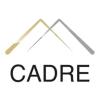 In November 2024 the Colorado 1241 Task Force released their final report detailing recommendations and areas for further study to guide improvement of Colorado’s Education Accountability System. The Task Force Report describes 30 recommendations across five domains and four areas for further study. Implementation of any Task Force recommendations should be directly tied to a clearly stated theory of action articulating the goals for Colorado’s school accountability system and explaining how implementation of the proposed recommendations would make the accountability system more effective at achieving these goals. In this commentary we highlight points for consideration relating to nine of the 30 task force recommendations to inform decisions about implementing recommendations from the Task Force Report.
In November 2024 the Colorado 1241 Task Force released their final report detailing recommendations and areas for further study to guide improvement of Colorado’s Education Accountability System. The Task Force Report describes 30 recommendations across five domains and four areas for further study. Implementation of any Task Force recommendations should be directly tied to a clearly stated theory of action articulating the goals for Colorado’s school accountability system and explaining how implementation of the proposed recommendations would make the accountability system more effective at achieving these goals. In this commentary we highlight points for consideration relating to nine of the 30 task force recommendations to inform decisions about implementing recommendations from the Task Force Report.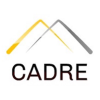 This study analyzes the redesignation patterns of a cohort of Multilingual Learner (ML) students in Colorado from 3rd to 8th grade (from 2018 to 2023), focusing on how redesignation varies across demographic groups. Redesignation as fluent English proficient (FEP) is a two-step process in Colorado: students must first earn a minimum score on the ACCESS exam and then produce a standardized body of evidence (BOE) demonstrating readiness to transition to mainstream English classrooms, with BOE criteria defined locally by districts and schools.
This study analyzes the redesignation patterns of a cohort of Multilingual Learner (ML) students in Colorado from 3rd to 8th grade (from 2018 to 2023), focusing on how redesignation varies across demographic groups. Redesignation as fluent English proficient (FEP) is a two-step process in Colorado: students must first earn a minimum score on the ACCESS exam and then produce a standardized body of evidence (BOE) demonstrating readiness to transition to mainstream English classrooms, with BOE criteria defined locally by districts and schools. In this report, we review a widely used method for calculating effective weights and apply it to evaluate the alignment of nominal and effective weights for composite accountability scores produced in the Colorado School Performance Framework (SPF).
In this report, we review a widely used method for calculating effective weights and apply it to evaluate the alignment of nominal and effective weights for composite accountability scores produced in the Colorado School Performance Framework (SPF).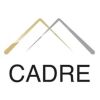 This paper investigates differences between male and female student performance on multiple-choice (MC) versus constructed-response (CR) items used on the large-scale math and reading PISA tests. The results, based on data for high school-aged students in 35 countries including the US, provide consistent evidence that on average male students tend to earn relatively higher scores on MC test items whereas female students tend to earn relatively higher scores on CR test items. The pattern was consistent across countries, although the magnitude of differences varied by country and were larger on average in reading than in math. Policymakers, researchers, and other audiences using test scores to compare student achievement across gender groups should consider the types of item formats used on tests when interpreting results.
This paper investigates differences between male and female student performance on multiple-choice (MC) versus constructed-response (CR) items used on the large-scale math and reading PISA tests. The results, based on data for high school-aged students in 35 countries including the US, provide consistent evidence that on average male students tend to earn relatively higher scores on MC test items whereas female students tend to earn relatively higher scores on CR test items. The pattern was consistent across countries, although the magnitude of differences varied by country and were larger on average in reading than in math. Policymakers, researchers, and other audiences using test scores to compare student achievement across gender groups should consider the types of item formats used on tests when interpreting results.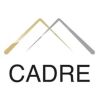 This paper describes threats to making valid causal inferences about pandemic impacts on student learning based on cross-year comparisons of average test scores. The paper uses Spring 2021 test score data in Colorado to compare three different statistical adjustments that have been used to make inferences about pandemic impacts. Results illustrates how unadjusted cross-year comparisons may be misleading and highlight instances when the statistical adjustments can lead to different conclusions about the relative impacts for different groups of students.
This paper describes threats to making valid causal inferences about pandemic impacts on student learning based on cross-year comparisons of average test scores. The paper uses Spring 2021 test score data in Colorado to compare three different statistical adjustments that have been used to make inferences about pandemic impacts. Results illustrates how unadjusted cross-year comparisons may be misleading and highlight instances when the statistical adjustments can lead to different conclusions about the relative impacts for different groups of students.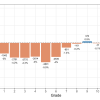 IntroductionThe COVID-19 pandemic led to historic changes in public school enrollment in the US. There has been considerable interest in quantifying the magnitude of these changes, and in understanding their causes and consequences (e.g., Dee &
IntroductionThe COVID-19 pandemic led to historic changes in public school enrollment in the US. There has been considerable interest in quantifying the magnitude of these changes, and in understanding their causes and consequences (e.g., Dee &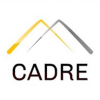 This is an addendum to a report prepared for the Colorado Department of Education (CDE) by the Center for Assessment, Design, Research & Evaluation (CADRE) at CU Boulder (Shear et al., 2021). CDE requested an addendum to the 2021 CADRE report presenting similar descriptive analyses for schools that participated in the Connect for Success (CFS) program and providing initial descriptive analyses of academic outcomes for schools participating in two other Empowering Action for School Improvement (EASI) programs: The Multi-Tiered Systems of Supports (MTSS) and Accountability Pathways Planning and Implementation (Pathways).
This is an addendum to a report prepared for the Colorado Department of Education (CDE) by the Center for Assessment, Design, Research & Evaluation (CADRE) at CU Boulder (Shear et al., 2021). CDE requested an addendum to the 2021 CADRE report presenting similar descriptive analyses for schools that participated in the Connect for Success (CFS) program and providing initial descriptive analyses of academic outcomes for schools participating in two other Empowering Action for School Improvement (EASI) programs: The Multi-Tiered Systems of Supports (MTSS) and Accountability Pathways Planning and Implementation (Pathways). For this report, we analyzed longitudinal administrative data collected by the Colorado Department of Education to track the academic performance of schools. The analyses contained in this report focus on the set of schools receiving School Turnaround Network (STN) and School Turnaround Leadership Development (STLD) supports.
For this report, we analyzed longitudinal administrative data collected by the Colorado Department of Education to track the academic performance of schools. The analyses contained in this report focus on the set of schools receiving School Turnaround Network (STN) and School Turnaround Leadership Development (STLD) supports.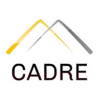 This report focuses on one particular technical choice CDE must make when deciding which version of the SGP model to use in measuring student growth, namely whether these measures should be based on so-called cohort or baseline-referenced SGPs.
This report focuses on one particular technical choice CDE must make when deciding which version of the SGP model to use in measuring student growth, namely whether these measures should be based on so-called cohort or baseline-referenced SGPs.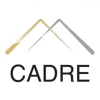 Link to Resource: Between-Year Stability of Growth Percentiles : Technical Brief #3Authors: Benjamin R. Shear and Elena Diaz-BilelloThe purpose of this research brief for the Colorado Department of Education
Link to Resource: Between-Year Stability of Growth Percentiles : Technical Brief #3Authors: Benjamin R. Shear and Elena Diaz-BilelloThe purpose of this research brief for the Colorado Department of Education

